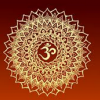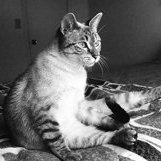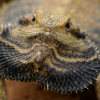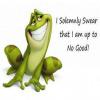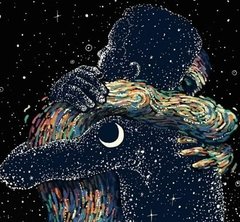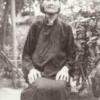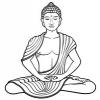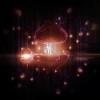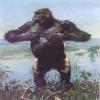Search the Community
Showing results for 'Dream'.
Found 7,590 results
-
I just thought I'd add to this. I think I watch too much stuff, but due to illness I've been stuck inside. Obviously, it's better to practice than to watch things, but, if you're having a break, hanging out with friends/family, or just want to watch something to inspire you, then it's good to have inspirational, enlightening viewings (i think). I'm going to put an @ in line with all of the things that I think are best, indicating that: 'this is where it's at/@.' Obviously, more @'s mean it's even better, but, at least one means I think it's definitely worth a watch and is amazing; more than one means that I think it's amazing AND relevant and a 'MUST' watch. Spiritually Inclined/Enlightening/Mystical Films: I heart Huckabees. Never seen anything else like it. Non Dual, philosophical, existential comedy with dustin hoffman. What more could you want? It's brilliant. @@@ Fight Club (Let that which does not matter, truly slide; know you are going to die; you are not your khakis) @@@ Waking Life (brilliant docu/film about lucid dreaming and enlightenment/philosophy) @ American Beauty (giving up material life/surrender) @@@ Avatar (tribal/nature importance/beauty) Big Fish (nice and mystical, a bit of yama and niyama) Green Mile (beautiful, mystical, super natural) @@ K-Pax (alien visitor? ) Kung Fu Hustle (for those into the martial side; funny and beautiful) @ Magnolia (about the human condition; life, death, forgiveness) @ Me and You and Everyone We Know (it's weird, I don't know why I've recommended it, good though) Mr Nobody (about life, death, destiny) One Flew Over The Cuckoos Nest (breaking out of maya's prison) Moby Dick (killing the white whale/illusion) Pleasantville (new paradigms) Synechdoche New York (can't recommend this highly enough; it's weird, wonderful; not an easy watch, but covers many topics) @ @ @ The Fall (whilst most all films involve the importance of relationship love, this one doesn't so much, which I really like; it focuses on the innocent relationship between a guy and a little girl both in hospital; beautiful and funny and nice) @@@ The Men Who Stare At Goats (for those interested in modern OBE research, special powers, etc, this is a must watch; based on real events; you can even get a scanned copy of the 'New Earth Army' training manual online: http://arcturus.org/field_manual.pdf !!! ) @@@ Shawshank Redemption (beautiful; get busy living or get busy dying) @@@ The Truman Show (breaking out of the illusory world) @@ The Game (mid life crisis/transcending what's not important) The Lovely Bones (nice and mystical story) The Secret of Kells (beautiful mystical animation) @@@ The Diving Bell and The Butterfly (importance of perseverance) Total Recall (what is real, what isn't; old version) V for Vendetta (overcoming the odds; vanquishing lies, etc) Vanilla Sky (waking up from illusion) Wristcutters a Love Story (funny quirky film about afterlife for suicides) I second: The Fountain. (The importance of surrender). @@@ Milarepa (still waiting for the follow up though) The Matrix (breaking out of illusion) @@@ Blade Runner (what is life/soul/true) What Dreams May Come (heaven and hell) @ Jacobs Ladder (heaven, hell, surrender) (not an easy watch) @@@ Gattaca (overcoming the odds) @ Spiritual Documentaries wise: Who's driving the dream bus (I don't agree with the guy's conclusions at the end, but the film is good). @@ The Yogis Of Tibet (Contains stuff on Trul Khor not shown before + interesting in general) @ The Tibetan Book of the Dead (narrated by Leonard Cohen) DON'T watch Enlighten Up (in my opinion, I found it irritating; the person doing the documentary and the person in it didn't seem to know what they were going on about; she just focused on asana really; the guy struggles to see where bhakti, jnana and asana all fit together; no one explains this to him, it feels like the creator of the film could easily have done this; I'm sure anyone who has spent a month reading into Yoga (Jnana, Bhakti, Raja, Karma - Yoga) could quite easily explain how they all connect.) The Louis Theroux India and Enlightenment episode (all louis theroux stuff is amazing too) @@@ Aliens (actually good, not like a lot of rubbish out there): I know what I saw (best alien documentary I've seen so far) @@@ Sirius (mixed feelings about this, but it's another interesting doc on aliens with a spiritual edge; I definitely agree with the sentiment) With regards to society stuff, corruption, indoctrination: The Trap - Series - Adam Curtis (a good sociological look at society) @@@ The Corporation @@@ The Yes Men 1 and 2 @ The House I Live in (amazing look at the ridiculousness of prohibition and how it disenfranchises the poor [and, of course, the people at the top get all the money; including HSBC [look in the news] who have NOT been punished for knowingly receiving and laundering drug money, whilst the poor get locked up for the petty crimes of selling to their friends to support their habits]) @@@ Jonestown, the life and death of the people's temple (incredibly sad story on a cult and the importance of not being brainwashed ; it's a shame; headed by a non sociopath, it could have been a beautiful non american, socialist utopia [makes me wonder about conspiracy]) @ Leaving the cult (interesting doc about leaving 'The Prophet' cult) The most dangerous man in america (about a guy who went from war supporter to whistle blower, the first whistle blower, brilliant) @@ With regards to anthropology: Tribe (by bruce parry; I think it's called something else in the US; he goes around staying with different tribes, taking part in ceremonies, properly immersing himself in the tribe) @@@ BBC Human Planet @@ Science, Biology, Physics: BBC Inside The Human Body BBC Time - Series - Michio Kaku @@ Into The Wormhole (hosted by morgan freeman; brilliant; asks questions we all wonder, especially those who are mystical/spiritually inclined) @@@ Haven't Watched Yet, but Carl Sagan's Cosmos looks amazing. BBC: The Life series; Planet Earth series; Blue Planet series (all for the beauty of nature) @@@ 'Other', documentaries: Murderball (inspirational; about living a full life with disability, among other things) @@ How hackers changed the world (self explanatory) @@ Fiction series: Adventure Time (it's amazing; funny without being derogatory or negative; truly positive AND comical; mystical; some episodes mention third eye, dmt, other dimensions, many mentions of meditation; in one episode B-mo and Finn are meditating and B-Mo says that he/she felt like she was floating up and down when she was meditating (Kriya / Spontaneous Movements!!! / Levitation); a brilliant Non-dual episode is B-Mo lost [the ending]; it's on cartoon network, and CAN be watched by kids (if you've got them, no swearing) but has a massive cult following, and seems to be primarily geared towards mystically inclined adults; SO positive, lovely, funny, mystical) @@@
-
"Words of my Perfect Teacher," by Patrul Rinpoche: ******************************************************************** Drom Tonpa asked Atisha what was the ultimate of all teachings. "Of all teachings, the ultimate is emptiness of which compassion is the very essence," replied the Master. "It is like a very powerful medicine, a panacea which can cure every desease in the world. And just like that very powerful medicine, realisation of the truth of emptiness, the nature of reality, is the remedy for all the different negative emotions." "Why is it, then," Drom Tonpa went on, "that so many people who claim to have realized emptiness have no less attachment and hatred?" "Because their realization is only words," Atisha replied. "Had they really grasped the true meaning of emptiness, their thoughts, words and deeds would be as soft as stepping on cotton wool or as tsampa soup laced with butter. The Master Aryadeva said that even to wonder wether all beings were empty by nature would make samsara fall apart. True realization of emptiness, therefor, is the ultimate panacea which includes all the elements of the path." "How can every element of the path be included within the realization of emptiness?" Drom Tonpa asked. "All the elements of the path are contained in the six transcendent perfections. Now, if you truely realize emptiness, you become free from attachment. As you feel no craving, grasping or desire for anything within or without, you always have transcendent generosity. Being free from grasping and attachment, you are never defiled by negative actions, so you always have transcendent discipline. Without any concepts of "I" and 'mine' you have no anger, so you always have transcendent patience. Your mind made truely joyful by the realization of emptiness, you always have transcendent diligence. Being free from distraction, which comes from grasping at things as solid, you always have transcendent concentration. As you do not conceptualize anything whatsoever, in terms of subject, object and action, you always have transcendent wisdom." "Do those who have realized the truth become Buddhas simply through the view of emptiness and meditation?" Drom Tonpa asked. "Of all that we perceive as forms and sounds there is nothing that does not arise from the mind. To realize that the mind is awareness indivisable from emptiness is the view. Keeping this realization in mind at all times, and never being distacted from it, is meditation. To practice the two accumulations as magical illusion from within that state is action. If you make a living experience of this practice, it will continue in your dreams. If it comes in the dream state, it will come at the moment of death. And if it comes at the moment of death, it will come in the intermediate state. If it is present in the intermediate state you may be certain of attaining suppreme accomplishment." The eighty-four thousand doors to the Dharma that the Conqueror taught are thus all skillful means to cause the bodhichitta-- emptiness of which compassion is the very essence--to arise in us. Without bodhichitta, teachings on the view and meditation, however profound they may seem, will be no use at all for attaining Buddhahood (...)
-
if someone have had lucid dream then to open LD(lower dantien) should not be so hard. The diffrence is that when you enter LD then its not permanent or feeling that something is still missing, that you are still not close enough to reality feeling(same feeling you have in lucid dreams). So you try and try getting into that reality(LD already open), some nonordinary experiences and then one day you see the "pill", you digest it and then you need to come "out of the cell" by leaving the old way of being and entering new way first time(it feels good). You now are same like you are in lucid dreams but the power is still weak. in lucid dream our experience field is whole, it can be replicated in this waking world too, but the intensity is much weaker here. Comparing lucid dream with this reality is enough to succesful alchemy. Also kundalini is the same thing, left and right channels are left and right brain and same yin and yang and you can hold them and make them react, but its at the beginning automatic, trying to just image what its like to be whole and make it seriously really happen in live and your LD opens automatically. Leaving out the details and trying to sense the hidden, unmanifested aspect. If you compare lucid dream and real life then will understand what its meant by these words. Dream and waking life just seem different at the beginning. Trying to find whats different and then trying to eradicate the difference by entering what is correct. This is the sense of "i am" its obvious in lucid dreams but not so obvious in waking life.
-
In order to remain sane , the mind has to create some indicator that what one is thinking of is not exactly the same as what one experiences from the senses at some given moment. If the two were indistinguishable , daydreaming about a stroll in the park might leave you in the middle of a street. Present moment experiences tend to have a great deal of power relative to recollection, and it needs to be that way, because when you remember , to an extent, you relive an experience you had,,,and while it may be very vivid , you generally can tell that this is not present moment experience. You may recognize this dichotomy when in a dream state, when you recognize that you are dreaming, or overlook it when you meditate.
-
It's not you who feels powerless and low. It's the perceived you. This junction is basically the red and blue pill event from The Matrix. Either you live in the dream world or put in the effort to wake up. It's up to you.
-
In my opinion, a mo-pai forum is quite useless since the school is closed and all we have are books, legends and pop-corn. A lot of qigong people started to re-create a western mopai school: something like neo-paganism or rune revival. Probably, they have very little of the original thing. So, what's the point of discussing something that... nobody actually practice in the original school? There are many in delusional states of mind that think to be in the real thing because they feel something, they dream of JC, etc... They want to promote their weird views and teach their reconstruction-ism for fun.
-
Let me ask, do you guys find that releasing The Knot results in the lower dan tian opening up and suddenly deep breathing becoming easy? I cultivated this state for a few days. As has been said, the knot is like a whirlpool which attracts every possible stressor and they all form the knot. From that brief few weeks of experience, I found that it was possible to remain unknotted. But here's the catch. The knot is like a newborn baby, the slightest stressor will set it off. Isn't it funny that Lao Tzu writes in the Tao Te Ching, are you ready to become like a newborn baby? [#10] Can you coax your mind from its wandering and keep to the original oneness? Can you let your body become supple as a newborn child's? Can you cleanse your inner vision until you see nothing but the light? Can you love people and lead them without imposing your will? Can you deal with the most vital matters by letting events take their course? Can you step back from your own mind and thus understand all things? Giving birth and nourishing, having without possessing, acting with no expectations, leading and not trying to control: this is the supreme virtue. And these precepts are what I found to be the essence of the knot. Any attachment triggers the knot. Incredible, is it not? But this acting without expectation, it may perhaps include acting without the expectation of not getting hurt! Fundamentally the knot is there to stop you getting hurt in some deep perceived fashion, whether emotionally or physically. Physically it is as if the knot is a limiter on the dynamic range of the human beingness - when it is removed you can act in loud, confident ways that are physically impossible with it engaged! There is a meditation I developed out of this. It works for dream states and waking states. In the dream state it results in taking active control of the dream - being lucid, aware, and also it results in cessation of negative dream phenomena - dark entities, fears, paralysis, so on. There is a threshold whereby once it is bypassed, the dream state becomes filled with bliss, intrinsically ecstatic, deep rest is attained. One very interesting thing is that when the knot is removed correctly, at night you may happen to feel the body squirt fluid into a certain chamber in the central part of the brain! This fluid is literally felt as a squirt, to be crude it is literally like something ejaculates inwards into the cavity. This fluid is felt to be exceedingly cool and refreshing and it feels so as to wash out the brain and a sensation of clarity and release is experienced when it finishes. I used to wait every night during this phase to feel this. Here is a potential connection - the glymphatic system; this might in fact be the very fluid in question. Anyway, back to the meditation. When awake, the primary result of the meditation is a direct action unto this knot - each breath is felt to unknot it so long as it is sustained. How is the meditation done? Very simply, you will notice that each thought elicits a directly corresponding system-wide reaction in the body. Now, *either* stress hormones are secreted OR relaxation hormones are secreted. If you are keen, you already grasp the full essence of the meditation from this description. What you wish to do is to disconnect the thought-reaction impulse. There is a neural circuit which seems to mediate this Thought<=>Tension impulse and we want to actively work on this to switch it off. Consider: nerves that fire together, wire together. Whatever we do, we strengthen the neural connections thereby rendering it easier. Bad if you do stress, great if you do happy! The knot in fact has a clear neurological origin. There are two amygdalas, the left and the right. This organ is responsible for raw hardware level impulses - fight or flight, desire, semi-reflex actions, so on. So we want the left amygdala connection to strengthen, and the right amygdala connection to either weaken or stay dormant, I am not sure which occurs with meditation here and it does not matter too much. So again, how is the meditation done? Well, you identify the two opposing flows of energy. You will find each and every thought, however subtle will trigger the circuit. Each and every time you will identify the energy flowing one direction or the other: tightening or releasing. If you have no meditation practice then identifying this will be hard. But by practicing Insight meditation (Vipassana), you peel back the layers of the Self enough to finally see this in front of you. Regardless, when you identify the two opposing flows, it is as simple as flowing your mind in the releasing direction. Again and again and again. In fact it took me thousands of changes of direction per day and it might take you the same, the mind is relentless. Flowing the mind in the releasing direction is something you learn by doing it, learnt with trial and error as you keep trying and start making fewer and fewer errors. It is an internal teaching, you are teaching your body that it's OK, that everything is fine. At its essence, this is what it is, this is the very knot itself - the idea that "everything is not quite OK so I must tense". So this is the meditation, every time a thought elicits stress-response, you release the clutch. You let it go. It is a physical process, it is a directly felt action. I guess this is where non-action originated, some genius identified this early on in history. While they had to describe it in vague terms like "do without doing", we can cut open a hypothetical brain now, and point to the bit that's the issue. How excellent! I will add, at some point during this unknot practice, Samadhi arises. You can fall asleep inside your own body. Deeply awake to the outside world, fast asleep within - this is like the reverse of Yoga Nidra. Breathing from the heels, you fall asleep into the rhythm of the breath. By the time you enter this state, breathing will no longer feel like what you know as breathing. Rather you will be actively feeling the breath/prana making purposeful rhythmic motions up and down your body, and you will physically feel the lightness of the breath orbiting the body (MCO). It is a truly stupendously amazing sensation when you enter this mode. You can harness prana in and out of your body - for the tense person, prana is like a volatile gas that quickly dissipates and disappears; for the one in deep relaxation the prana takes on a viscous, almost liquid state where it is felt to have momentum and mass. If you can enter such a state you will be able to collect prana, condense it into a ball, and do stuff with the ball; the ball will have physical mass, momentum and effect. The harmala alkaloids are very useful for developing the awareness of the knot. Found in syrian rue and b.caapi (ayahuasca), they light up the pranic pathways and present a kind of grace, a leeway in the meditation such that where efforts were tight and narrow and indeed precarious, they become relaxed and spacious, indeed efficacious. As with all things, this too must be constantly cultivated and maintained. Real life took over and I dropped out of trying this stuff. It takes a lot of effort ironically, to relax. When real life returns to fanta sea, I will hopefully start again. I know now, the body is a breath machine at its root. The true essence of the body is the breath and think how few amongst mankind have ever found the true power of the breath!
-
What did you do to cause the Kundalini energy to rise in the first place? The energy does not rise just because you want to. It can rise as a result of prolonged, mental stress and introspection and reflection of the self and who you are in general, or with drugs. Before my kundalini energy rising, I was heavily into analyzing myself within the context of Carl Jung Analytical Psychology. Before that, I was heavily into Nietzsche. It was a very stressful and dark time for me. My world was closing in on me and all I could do was to hanging onto what is really me. Once my mind was unlocked by the insights from Carl Jung's psychology (lots of writing and reading), I was liberated. It was like I became a new person. All of a sudden, everything makes sense. I have reached a new level of clarity. I was no longer in the dark about my life experiences. I was literally reborn. I decided to leave my old life behind and to start anew, going to a new college and majoring in something really new. I was majoring in law but was still a freshman attending your mandatory basic courses. Then, one night in my sleep, I dream of 2 Taoist immortals. Woke up and I had my first Kundalini energy rising experience, and to have completed the microcosmic orbit.
-

Meditation overload - Anyone just can't meditate anymore?
ChiForce replied to Jeff's topic in General Discussion
You have to be specific in what ways one can't meditate long enough? The mental aspect or the physical? For me, 1 hour is my upper limit. After that, my mind goes into a stupor and to begin to dose off. I would begin to lose my concentration. Once in a while my legs would be overwhelmed with numbness and I have to stop. I meditate in a half lotus position. I meditate in order to induce a Samadhi. I am usually very successful at that in the morning. At night, not so much. If nothing happens in 1 hour, I would call it a night. Then, I also do sleep meditation and here is thing getting strange. I would experience samadhi in my sleep and the nimitta light would transform into various dream images. I would usually end up waking up around 3am to 4am in need to go to the bathroom or waking up feeling very, very warm with an overwhelming chakras vibrational sounds ringing internally. -

Thoughts on Ukraine / Russia Debacle?!
ChiForce replied to DalTheJigsaw123's topic in The Rabbit Hole
Anyone still following the event? Here was what I dream few weeks earlier. I was pretty sure I was talking to Putin but he was represented as my coworker. Putin is a man of many egos. However, the situational context was about the Ukraine crisis. Basically, in this dream, I was telling him he has to do battles with someone in 50 days. In 50 days, approximately today is the 50th day. In the dream, I literally told him in 50 days he has to do battles with someone. Now, for the past months, he has been doing battles with the interim govt and the West over the Ukraine crisis. No one specific. Of course, on the 25th, a new Ukrainian president has been elected and that's the person he has to do battles with. Why they have to do battles? Why can't the new president bring peace? Why he and Putin have to do battles on the 50th day? That's because the new president has been increasing the intensity of the military operations ever since he was elected, 4 days ago. Although he promised to bring peace but the decision wasn't his to make, but by his own self appointed parliament. Mind you, when I had this vision, this knowledge was already known by me and Putin, assuming I was actually talking to him in my dream. This was happening in the dream while he and I was in China. Again, he was preparing to visit China around late May in order to sign the gas deal and to strengthen the bilateral ties between the 2 countries. I gave him 4 swords to prepare for battles. The 4 swords could be the representative of this event today: http://www.dw.de/eurasian-union-putins-answer-to-the-eu/a-17669138 Ukraine could have been the 4th state... I saw a group of Chinese officials dressed in the Qing dynasty clothing and they made some reference to the unilateral sanctions against Russia. There were other contexts too but I won't reveal them because of their sensitive matters. You can't do battles without making your move...so I heard that people in the East and South of Ukraine are seeing Chechen fighters fighting along side the separatists. That's interesting, I think. My theory is that we won't see peace in Ukraine unless the new president ousts and replaces all of the current parliament members. Most of the current parliament members belong to the Fatherland party and they aren't loyal to the new president. Also, after the coup, the power of the Ukrainian president has been greatly diminished and shifted to the parliament instead. Sadly, I see no peace in the future.... -

Help for people with problems with ghosts, demons, spells, a curse or a bad karmic situation.
Yascra replied to Fu_doggy's topic in General Discussion
I guess with that you've qualified to update C T's individual conditioning regarding that matter "You are mistaking a dream-like state for reality" is an appropriate answer only in extremely few cases of suffering.The problem about standing besides a crying baby and discussing the emptiness of it's state instead of just feeding it out of compassion is a problem few persons might have if not having been in contact with buddhist reasoning. After the latter has taken place, arrogance and pride assist pure heart-less-ness in decisions against doing the right thing. And one core of that problem is the simple fact that thinking about the empty nature of the person in need is a way to deal with the theory of emptiness, while acting out of compassion is it's practice. Unfortunately few buddhists seem to get the latter part. You can hardly helpnanyone who has fallen into the trap to think s/he is a "higher", "knowing" being now, the elite of humanity who knows that the hungry baby is an empty state, and thereby leaves the feeding to those lower beings who are still "stuck" in what you thrn have to call "dream like states". And that's not even Vajrayana. That's just the relatively more harmless buddhist concept of emptiness and it's effect on those who are deluded and/or lack virtue. Those teachings are not fit for persons who lack wisdom. And that's exactly why in many cases it will do more harm than good to publicly proclaim such things. By the way, one good thing about Vajrayana is that in most of its systems it is breaking a vow to teach emptiness to those who are not qualified, and it also is breaking vows to show a lack of compassion. Those vows are really not great, special or high-level, just an absolutely basic, necessary foundation for ALL persons or beings. Still, although people seem to tend to regard themselves as the ultimate and great practicioners if they were given "vows", maybe in a nice ceremony, they don't even seem to understand the most simple concepts. Directly speaking, C T, if you want to take sides of Vajrayana and defend that system, I'd suggest you engage in the basic concepts of it first. I'm not criticizing that thing to take revenge or s.thing. It's just that detrimental effects are too obvious - and arguing against the idea and concept of healing and directly, actively helping people is one of the worst traps you can get into in that system. As Jetsun mentioned, few or no persons at all who act in a natural way would leave that baby crying. I feel quite some buddhists would, trying to forcefully act in a way that accords to their little, rational understanding of "emptiness". I've offered some opportunities to you to demonstrate that your level of understanding is deep enough to qualify that first post of yours, and though you argued that it's some crowd far away that makes me criticize Vajrayana, you left out quite some possibilities to demonstrate that you're better than them. In your interest I hope that although you're obviously confused about the real nature of emptiness, you're still able to do good, or in other words, feed the baby. You should be aware that anything else, and every argumentation against that deed, is transgressing vows, not in theory, but in practice. Most stupid beings know you have to feed a crying baby. To a buddhist you have to explain why, and why s/he's not making her-/himself a Shravaka, namely, practicioner of a "lower way" by doing so. How could anybody safe such a system. Karma still exists, and will continue to exist. Don't think it is so easy. -
I'm wondering if anybody here knows about this. Before I got full blown physio kundalini syndrome a couple of years ago (along with all the nasty stuff), I had this 6 month "prodrome", warning, or transition period, however you want to say it. Basically there were definite changes to my body compared to normal, but once the "real" kundalini symptoms started, this transition state disappeared. It affected me in a lot of really fascinating ways- 1. I had WAY WAY more energy than before. It felt like my body was supercharged. I didn't want to sit still. I walked faster. I talked faster. I thought faster. I could breeze through an hour's worth of work in only 20 minutes. My head was buzzing with fresh, innovative ideas. 2. Despite this, my sleep was good. I got a full night's sleep every single night. I had really vivid dreams, much more than before, with lucid dreams practically nightly. I could even decide what I wanted to dream about. 3. Mood and feelings were increased. I felt good for no apparent reason. Every morning when I got up I would be like, FUCK YEAH, I'm awesome, glad to be alive ! I had a greater range of emotion than ever before. 4. Confidence, ego, and arrogance were way up. I used to hate public speaking, but suddenly I was able to give speeches in packed conferences with little preparation. It felt completely natural to me. I was hitting on every sloot in sight. Even married ones. I felt like I was the shit, and I didn't give a shit about what other people thought of me. 5. Temper also increased. I got into shouting matches. Almost got into fistfights over trivial things. I remember having one bout of severe rage that frankly frightened a coworker. 6. Sexual prowess was down very very slightly. Maybe 5% It was noticeable, but barely. My sexual ability was so high to begin with that 5% is nothing, so I was not bothered. OK, so basically I am wondering what the heck happened during this 6 month time. This was seriously the best time of my life. I was like being high, but at night I was able to rest. It was like my skills in every single category were increased drastically, except that 5% decrease in libido, which I will gladly trade. I truly believe this is the best natural state that man can experience, far far superior to actual kundalini. It really pissed me off that it all ended once I got full blown kundalini syndrome, and all of a sudden I couldn't sleep, started having physical symptoms like twitches and energetic sensations. I would give a lot to return to that 6 month state. I wonder what it is? Has anyone experienced anything like this ? Is it remotely possible to experience it again ??? Thanks.
-
A slippery eel is right. Sort of like having a lucid dream. When I focus on something directly, it goes away. Have to look to the side.
-

Help for people with problems with ghosts, demons, spells, a curse or a bad karmic situation.
C T replied to Fu_doggy's topic in General Discussion
It wont work because its not a being's real nature. As an analogy, most People think they are the film reel, when in fact they are the light behind the projector. So there is confusion. Caught up in confusion and not being able to see their own nature, they think the movie on the screen is their real life. This is where all the dramas unfold and where karma is thought to accumulate on a basically empty piece of cloth. Phantastical stories of ghosts and demons, dark, hidden recesses where the past lurks, deep, unrequited desires fuel hidden emotions, and anything, good or bad, can happen on screen, bringing to birth a plethora of phobias and neurotic tendencies. Its no wonder people turn to healers and exorcists, to create contrast and add layers to an otherwise dream-like existence, mistaking it for reality. -
* This age of skyrocketing technological advances has probably left most users like myself, feeling that everything just happens with the merest click of a button. These stories below, however, are done in a rather time-consuming way, (largely because my computer skills and savvy are very limited indeed). They are all taken directly from my own collection of books, and individual pages of each story are then put through the OCR, (Optical Character Reader) on our home scanner. Perhaps because ours is a pretty basic model the process of correcting the scanner’s inaccuracies then takes me many days to complete. So, I think quite carefully about what I add here. This one I have chosen below is again from John Blofeld’s magical stories of his years spent in China in the 1930’s, before Communism changed that country forever and virtually eradicated its past. Perhaps unsurprisingly, (since this is a Taoist Forum after all), the most seemingly appreciated stories here have been either accounts of spiritual seeking in Asia during the last century, or of daily living as experienced by Tibetan people during that same century, (again, before the tidal wave of Chinese Communism engulfed their country.) So, since giving the reader whatever he or she enjoys the most should be the major decider,… today I’ll bring out for you another of John Blofeld’s accounts of his extraordinary encounters with Taoist recluses in ‘Old China.’ I don’t know if this information will add anything worthwhile to anyone’s approach and subsequent experience reading of this story, but it certainly has not been a mere five-minute ‘copy and paste’ job involved in bringing it here. For me, the time and effort involved is a kind of ‘paying homage’ to a most extraordinary man whom I deeply respect. John Blofeld was consumed by an inner for spiritual truth and for experiencing the last living remnants of ancient Chinese culture. All of his books are now out of print, and some quite hard to come by. The extracted chapter below was taken from his book : “The Secret and Sublime : Taoist Mysteries and Magic” * * Stumbling Upon Taoism: (Some Taoist Recluses) In my early twenties, I was fortunate enough to spend some years in Peking. In those days, arriving there from the West was like travelling back to another century. Everything was different - streets, houses, gardens, people, costumes and household objects, as well as language, food, and manners. Within the battlemented walls of that ancient city a large measure of China's traditional culture still survived; the old ways had not yet been shattered by modern innovations; the devastating Japanese occupation was still to come; as for communists, they scarcely, if ever, entered people’s thoughts. Innumerable rays of the past splendours of the imperial capital continued to shed their light. With so much beauty lying about me, I was seldom tempted to venture beyond Peking's outer gateways, but now and then I would visit a lovely range of hills rising to the north-west of the city; and once I happened to pass a night there in a small Taoist temple that lay securely in a sheltered fold. It was autumn. The trees cascading down the hillside presented a gorgeous display of scarlet, crimson, copper, bronze and gold, interspersed with the dark-green foliage of ancient cedars noted for their silvery- white bark. The aged temple showed signs of neglect, but its mossy tiles and weathered grey-brick walls still resisted inclement weather after five whole centuries of existence. It was inhabited by a solitary recluse, a dignified figure clad in Taoist garb who looked about eighty. His lace was a network of wrinkles, his grey beard was flecked with white, but his movements had the grace and alertness one comes to expect of elderly Taoists, whose extraordinary exercises preserve health and youthful vigour for many decades. I admired his antique clothes - a long robe of bronze-coloured cloth with enormous flapping sleeves resembling the wings of butterflies, and a curious stiff hat from the centre of which protruded a topknot of grey hair secured by an elaborately carved peg, A pretty ten-year-old child, long-haired and wearing a sky-blue robe, appeared; it was impossible to determine whether it was a boy or a girl. This child served us with pale-green tea in thick earthenware bowls, and some saucers of pine kernels, melon seeds, and sweetmeats made of rice flour. My host, whose name was Ch'ing-t'an Hsien-jen, (the Immortal of the Limpid Pool) soon called for heated wine, which the child brought in a narrow porcelain jar placed in a bowl of warm water to maintain its temperature at a higher level than is common for Western-style wines. Yellowish-green in colour, the mild wine tasted delicately of herbs. At first our conversation followed the usual stilted lines, host and guest courteously requesting details about each other; but when he perceived I was eager to learn something of Taoism, the recluse became less formal. Between the first and second jars, he persuaded me to don a padded Taoist gown as a protection against the evening chill, and led me into the main courtyard where he showed me several curious objects, including a rockery composed of fantastically shaped stones brought by some long-departed emperor from close to the frontier of Burma. This cunningly fashioned landscape, complete with mountains, grottoes, pools and winding river, produced the illusion of a distant scene. Half-closing my eyes, I could imagine a great range of mountains with contours pleasingly grotesque. 'And this !' he said, pointing to a plinth on which stood an oblong basin of dull-coloured earthenware containing a landscape created on a truly minute scale ; clearly the work of a gifted artist, it was perfect in every detail. Idly I asked why the plinth was so tall and his answer plunged me into a world of fantasy. 'You see, it is not just an ornament, but the present dwelling of the Great Master Po Yun who was abbot here three hundred years ago. It would be disrespectful to place it closer to the ground.' 'You mean his spirit lives here ?' 'Certainly. His body, too. It is his whim to be tiny and he is generally invisible; but, as you see, the Immortal eats and drinks like humans, though very little and not often. He chose to assume the stature of a very small dragon-fly, so they say.’ I gazed at some of the tiny dishes and at three empty goblets no bigger than daisies, noting that one of the dishes contained finely chopped minced vegetables and mushrooms. Naturally I could not make myself believe in the existence of that minute, invisible being; but out of courtesy, bowed low before his ‘dwelling', thus winning from my host an approving smile. This fantasy was the one irrational feature of his otherwise admirably sane and lucid conversation. With Taoists one had rather to expect such anomalies - a sure taste for beauty and a capacity for profound mystical or philosophical thought mingled with the most puzzling ingredients. I was sure that the old gentleman was not joking but I have never known what he really meant. Shyness prevented me from pursuing the matter further. Leading me back indoors, he broached a second little jar of heated wine; its contents gave me the courage to ask him why he, too, bore the title, ‘Immortal’. 'My disciples are foolish,, he smiled. ‘They choose to think I shall live forever in this body. Such simple-minded people ! When the ancients spoke of the possible transmogrification of the human body, they were hinting in guarded terms at a much more subtle reality.' 'And yet, Your Immortality, I have heard that certain learned Taoists do believe they can transmogrify their mortal flesh into spirit able to fly through the air and endure for aeons.’ 'No doubt, no doubt !’ he answered, by no means disconcerted. 'It would not do to contradict them. I spoke thoughtlessly.’ He fell silent and presently we turned to other matters. 'Tell me,’ I said, when for the tenth or eleventh time we had completed the antique ceremony of rising from our seats, carrying the tiny wine-cups to our lips with the fingertips of both hands, quaffing them solemnly, bowing low to low to each other and resuming our seats, 'what exactly do Taoist recluses do ?’ 'Such a question !’ he roared in mock indignation. ‘Be very sure we do not.' 'Do not what ?’ For a moment I thought my understanding of his Chinese was at fault, but suddenly he laughed and said: ‘Wu-wei (non-action) is our cardinal principle. You must know that asking a Taoist what he does is like asking a Confucian how he sins !' 'I beg Your Immortality's pardon,’ I replied, joining in his laughter. 'Perhaps I should have asked what exactly it is that you do not ?' 'Much better my young friend. I like you. Chinese youths these days mostly treat us as if we were innkeepers with nothing better to occupy us than looking after travellers. I shall tell you a secret. We do as well as don't, but then, you see, it is a special Taoist kind of doing. Not to do at all would make a recluse as useless as a dead pine-tree. Do you know the meaning of the Sublime Tao ?' I nodded. 'The Sublime Tao is what we Westerners call Ultimate Reality. At least I think so. Is it not the totality of being, the beginning and end of all existence? From the Tao we come; to the Tao we go - something like that? ‘Something like that,’ he repeated. ‘You may be - forgive me – a barbarian, but you do apprehend a fragment of the meaning, which is more than can be said for those -noisy undergraduates from Tsinghua who visit these hills at weekends. Permit me to expound wu-wei. It only appears to mean “action rooted in not-ness”. What it really means is “action rooted in non-being”. And what is non-being ? It is the Great Non-Being, a name for the Sublime Tao which is the formless matrix of a myriad forms. As I interpret it, wu-wei simply means “action rooted in the Tao”. What we shun is calculated activity, which can never be spontaneous, harmonious, free !' His voice had taken on a liturgical solemnity and this lapse into a priestly role seemed to amuse him, for he smiled deprecatingly and went on more softly : ‘Activity in itself is not harmful, but it must be just an instinctive response to immediate needs. Calculation or self-interested forethought leads to demon-action. Only activity proceeding from a mind that resembles a calm, deep pool of stillness can be free from undesirable results. Therefore I rise two hours before dawn and sit in meditation until noon, cultivating perfect inner stillness. When no thought moves, I feel the pulsing of the Tao. Then I am one with the plants whose sap pulses through their leaves, one with the stars pulsing with the glowing energy of fire. Because my thoughts are stilled, the Tao flows through me, its movement unimpeded. My words and actions are a natural, uncalculated response to present circumstances. A tree growing in the shadow of a wall does not think “in order to live, I must bend my leaves towards the sunshine and drink the water with my roots". It does those things spontaneously. Its spontaneous activity proceeding from stillness fulfils its needs.' 'Does the Tao resemble Shang-Ti, the Supreme God of the Christians ?' 'Certainly not. The Tao does not declare : "Let this or that be so" or "I shall do thus and thus". Nor is it separate from spirits, people, animals, rocks or plants. It is not just the source of being, but the being of all beings, the fullness and the nothingness of all things. Acting spontaneously, exerting no will, it acts gloriously. By according with its action, I, who am eighty-three years old, may hope to live perhaps for another thirty years - another fifty even; but not many people attain that great age in their fleshly bodies. Flesh must die, for the Tao, though changeless, is ever changing and none of its myriad creations endures long.' 'Why then do Taoists think so much in terms of immortality?' 'By personal immortality is sometimes meant relative immortality, the ability to endure a few aeons in some bodily or spiritual form. What arc aeons in comparison with the everlasting Tao ? Only the Tao as Being-Non-Being is truly immortal; the entities it forms never cease to change. Their constituents must ultimately dissolve.' 'Could a Taoist achieve even relative immortality if he were living in Peking or some other great city ?' 'It would be more difficult. What is needed to prolong life even by a few decades is perfect serenity, the result of freedom from restriction. How is that possible in a city where man-made laws and man-made custom compel us to behave like demons ?' It had grown late. Before leading me to my bedroom, he offered to give me some yogic teaching in the morning, breaking his meditation to explain its principles. Such an opportunity was too rare to be missed, even though it entailed rising hours before dawn and though autumn nights in those hills were, by my standards, bitterly cold. When he came to call me, I was asleep on the hard wooden bed, wrapped in a cocoon of wadded quilts. Teeth chattering, I donned the robe he had lent me, throwing a quilt over it like a cloak. As for the Immortal, he seemed scarcely to notice the cold. Wearing nothing over his robe, which was but lightly padded, he led me to his own room, where the image of a youthful deity enthroned behind a simple altar gazed down on us. The painted eyes seemed fixed on mine with a disconcerting expression of faint surprise. Lighting incense and candles, my host signalled to me to join him in making three full prostrations. Then he stood chanting melodiously the words of a sacred text lying open on the altar. To mark the rhythm he tapped a mallet against a hollow block of wood identical with the wooden-fish drums used in Buddhist temples. When this short rite was finished, he ordered me to sit on his bed with a second quilt about my shoulders and made sure that I was comfortable. Taking up a position cross-legged on a cushion placed on the ground, he embarked on some curious breathing-exercises so that the ch'i (universal psychic vitality) would circulate freely through his body. At the beginning he made violent motions of the arms, his sleeves flapping like wings. The next stage consisted of a rotating movement made by the muscles of his abdomen; despite the cold, he lifted up his robe to reveal his stomach, which looked as if it might contain a writhing python. Presently he grew still and his breathing subsided until no sound was audible. Simultaneously all movements of his body ceased. To all appearances, I was alone with a corpse sitting upright on the floor. How long this endured, I do not know. Barely able to keep awake, I saw the room grow light, and presently noticed that his eyes, long shut, were open and fixed on me. 'So you see, my young friend, how it is done. The preliminary exercises were designed to induce circulation of the ch'i. Later, I grew calm and my breathing became imperceptible even to myself. Meanwhile, my consciousness was directed to my nostrils, to promote awareness of the rhythm of my breathing. Next I concentrated on the Mysterious Gate of the Square Inch, which lies midway between the eyes; there it normally stays unwaveringly until noon.' 'What do you feel at such times?' 'I have no feeling. Though bliss arises, it is not my bliss, but an attribute of the Tao shining through that ghost, my body.' 'And then?' 'What else ? Go now to have your breakfast. I shall re-enter absorption in the Tao and so remain until midday. If you are obliged to leave earlier, pray excuse my not seeing you off, for, when you come to think of it, I shall not be here.’ Dismissing me with a wave, he resumed his meditation' When the child came in to serve my breakfast of millet-porridge and pickled bean-curd, I was still doubtful whether it was a boy or a girl. In answer to my question, came a high-pitched giggle. 'A boy, of course. Can't you see ? Grandfather will laugh when I tell him.' 'So you are grandson to the Immortal of the Limpid Pool ! You must be proud.' 'Yes, yes. I'm the lucky one of the family. All my brothers and sisters go to school to learn nonsense, but Grandfather keeps me beside him to learn real things. I'm going to be an Immortal with a body of pure white weightless jade. I shall be able to fly like a bird - no, an airplane, all over the world.' 'Did your grandfather tell you that ?' 'Oh, no. Everyone says so, though. Grandfather just smiles when I ask him. He knows it's true, but he's afraid of my being proud, you know. Still, I'm a Taoist, so I'll never be proud. Pride's just silly. I shall love being able to fly, but then anyone could do the same if he had Grandfather to teach him - even a girl, I should think.' 'What do you know about the Tao ?' I asked with deep interest. 'The Tao ? Oh, the Tao is big, big, big.' He spread out his arms to show me. 'Everything you see or hear or touch has the Tao. It's everywhere - in me, in you. No, that's wrong. Grandfather says it is me and you. I can fly from here to the Dipper Star, but not get away from the Tao. Do you know what Grandfather said yesterday ?' 'What was that ?' 'Someone rode up here, you see, and his horse left its yellow droppings outside our gate. Grandfather was pleased when I asked if those droppings were the Tao. He called them beautiful. I said, "Grandfather, they stink," and he said, "Yes, Little Five, they stink of Tao." I was shocked, you know, but Grandfather says if I keep my nose clean, everything will smell as sweetly as flowers.' I grinned.'Why do you laugh at me ?' he asked indignantly. 'If Grandfather says so, it must be true. Perhaps your nose needs cleaning, too.' 'I’m sure it does, Little Five. If your grandfather became my teacher, I'd learn how to make it clean once and for all.' I left soon after breakfast, climbing further into the hills so as to reach a large Buddhist temple which was the real object of my journey. The sun-dappled ground was carpeted with leaves and the birds were chorusing Taoistic approval. Following the narrow pathway, I reflected on what I had learnt, already wondering whether certain aspects of Taoism could be woven into a non-Taoist's way of living, and very curious about the whole subject. * Visits to other Taoists followed; the more I came into contact with Taoist recluses, the more I found their beliefs to be an extraordinary mixture of lofty wisdom and what struck me then as laughable or even puerile fantasies. This is well illustrated by my meeting on Mount Nan Yeo with a certain Pien Tao-shih, and so I shall relate the story in some detail. Nan Yeo, most southerly of Taoism's Five Sacred Peaks, is in Hunan province. Monasteries and the cells of anchorites cling to its precipitous slopes in profusion; buildings on the upper slopes are, as often as not, veiled by mist and clouds or, as some would say, by the breath of dragons. While making for a celebrated temple about halfway to the summit, I lost my way; a thick white mist descended, causing me to take a wrong turn and follow an undulating path curving round to the cold north face of the mountain where habitations were sparse. Unlike the route I had diverged from, it led past no shrines or buildings, but was solitary and wild. Presently the mist deepened and I wondered uneasily whether I should find shelter for the night. Stories of bandits, wild beasts and demons came flooding into my mind, so that I was overjoyed to find that the path stopped short before a low grey wall. There was a moon-gate with panels of faded scarlet lacquer beneath an oblong board bearing in gold calligraphy the legend: ‘Yun Hai Tung (Grotto of the Sea of Clouds)'. I was just in time. One of the gate's two leaves stood slightly ajar, but already a Taoist greybeard was preparing to bolt it for the night. 'Ho there, Distinguished Immortal,' I panted. I was hoping to find shelter.' He pushed open the gate, and, peering at me curiously through the wisps of cloud, hurried forward to make me welcome with elaborate courtesy. Raising and lowering his clasped hands effusively, he addressed me in archaic manner. 'Welcome, sir. Welcome to such poor comforts as our humble dwelling can offer. Night is upon us. If you will deign to accept frugal meals of coarse vegetables and cold spring water, we shall endeavour to make your visit bearable for as long as you care to honour us with your illustrious company.' 'No, no, this humble person dare not put you to such trouble,' I answered politely, but a chilly rain was falling and I hurried towards the ancient wooden gates. Stepping over a high sill, I entered a courtyard with rows of one-storey dwellings to left and right and a medium-sized shrine-hall opposite the gate. The greybeard shouted to make my presence known and an elderly man hurried out of a doorway to receive me. Dressed in a simple robe of blue cloth, he wore a most peculiar hat, tall and rectangular, which hid his topknot completely. Despite his years, he possessed a certain youthful grace of movement and eyes of extraordinary brilliance. To my relief, he did not keep me standing in the icy rain exchanging compliments, but seized my hand and pulled me under the broad eaves, calling for someone to attend to the 'distinguished guest'. Later I discovered he was the Abbot. Meanwhile a couple of young boys, also in Taoist garb, came running out to lead me to a guest room. The hospitality of that hermitage, though less than luxurious, was heart-warming. My room, which adjoined the shrine-hall, was small, but it was furnished with heavy old wooden pieces, including a great bed boxed in on three sides and curtained on the fourth. I noticed a couple of wall-scrolls, one displaying fine calligraphy in the ancient seal-style, the other depicting an elderly sage apparently feeling quite at home, though seated on a cloud-girt rock. On the table near my bed stood a porcelain vase containing a few branches of some sort of fruit-blossom. One of the boys brought me a copper hand-basin of pleasantly hot water. Bowing low, he urged me to wash quickly, hinting that delay would mean keeping everybody from their dinner. As soon as I entered the refectory, eight or nine recluses converged upon the round table, insisting that I take the seat of honour facing the doorway; however, in view of my youth, etiquette required that I accept it only after making a great fuss, and so at last the Abbot seized my arm and literally forced me to sit where bidden. The food consisted of some five or six dishes; as they had certainly had no time to prepare anything special for an unexpected guest, it was clear that these recluses did themselves fairly well. Rice was not brought in until the close of the meal, as the serving lads kept refilling our wine cups from heated pewter containers, and it was a rule not to serve rice until all had finished drinking. From what I remember, there was little difference in the appearance of my hosts, except as regards age. All wore the traditional Taoist habit, but there was a pleasing variety of colour, and the Abbot, who had changed his strange hat for another with a hole at the crown) now displayed a hair-peg of heavy white jade. We drank a fair amount of the darkly yellow wine, but it was so mild that I felt no effect beyond a comforting mellowness. The food consisted largely of vegetables, but there were slivers of meat which could not have been the case in a Buddhist monastery, and the pumpkin soup, served in the vegetable's thick green rind, contained the flesh and bones of a whole chicken. Following the usual custom, my hosts kept apologizing for what they described as the execrable food and each time it was up to me to find new ways of declaring that it was a veritable banquet. It would have been bad manners to ask erudite questions at table; even so, the level of conversation revealed that these were not innkeeper-type recluses of a kind sometimes found in more accessible monasteries, but men well-versed in Taoist literary works. Indeed, my coming upon that little hermitage proved a great piece of luck. By the end of the meal I had decided to stay on for several days so as to learn more about the Tao – the Mysterious Womb of the Myriad Objects. It turned out that the Abbot was a serene but rather taciturn man; however, when I sought him out the following morning, he kindly sent for a relatively young colleague called Pien Tao-shih, whom he ordered to remain entirely at my disposal for the duration of my stay. My new mentor's cell was furnished with little more than the barest necessities, but I shall never forget it. To relieve the room's austerity, he had laid out a few treasures on the top of the bookcase, including a piece of stone shaped like one of those fantastic mountains in Chinese landscape paintings; this rested on a finely carved blackwood stand. There was also a small bronze ox fashioned of creamy jade, but what held my eye was the strangest kind of picture I had ever seen. Mounted elaborately on a strip of fine grey silk and brocaded rollers, it consisted of a vertical panel of off-white paper, completely blank. Watching my expression, Pien Tao-shih said smiling : 'No, it is complete. The best of paintings hanging from one’s wall becomes so familiar that one doesn't notice it for days on end and its beauty seems to wane. On this picture, I imagine whatever scene I choose. Today it happens to be a pine-shrouded waterfall; tomorrow I think I shall decide on a tortoise or a crane. On your last day here, there will be a portrait of you riding away on - what is it to be, a horse or a camel ?' 'An elephant !' I cried. 'Magnificent ! A snow-white elephant with pink eyes and a pale-grey tail. You will be wearing a purple robe with an exceedingly wide black hat and carrying a paper parasol.' ‘Thank you. I am eager to receive some teaching about the Tao. Before we get down to it, I wonder if you would care to show me the sights of your distinguished hermitage ?' He led me through the shrine-hall, an oblong building running the whole width of the courtyard. Grasses were sprouting from cracks between the .green tiles on its heavy upward-curving roof, which was supported on faded red pillars of wood. Three of the walls were of dark-grey brick: the fourth, which faced the courtyard, was composed of a long row of wooden doors, their upper halves latticed with translucent rice-paper. As only one of the doors stood open, the interior was gloomy. The three statues and their altars had a shabby look. In the centre was an effigy of Hsi Wang Mu (Royal Mother Residing in the Western Heaven), her gilded flesh shrouded in robes bedecked with seed-pearls. To her right was an effigy of Lu Tung-pin, a Taoist Immortal regarded as the hermitage's patron deity. His painted face, lightly bearded, looked calm and benign, unlike the fierce red face of Kwan-Ti, the deified warrior, enthroned on the left. Pien Tao-shih bowed perfunctorily to the effigy of Lu Tung-pin and we walked through a small back-door that led straight into the grotto. Here, too, it was gloomy. The water in a pool at our feet looked almost black. On the farther side were some rock-formations with niches containing demonic figures of mud-filled plaster in various stages of decay. Altogether the effect was dreary; yet, for a reason that escaped me, the grotto's atmosphere inspired a notable feeling of serenity. 'Is that surprising ?' inquired Pien Tao-shih. 'This is our meditation cave and has been so for centuries. Who knows how many gifted sages - Immortals even - have given it something of their peace ?’ Feeling chilly, we soon returned to his cell and one of the boys brought in a brazier of glowing charcoal complete with tripod and kettle. Pien served tea from a very plain but quite attractive old teapot which was never washed, so that its porous interior, encrusted with the deposits of many thousand brewings, gave even quite ordinary tea-leaves an exquisite flavour. When we were settled comfortably with our tea-cups, he talked and talked with a kind of gentle enthusiasm. Of the many things we discussed on that occasion and during the rest of my stay, I particularly remember the story of his life, which had already embraced many aspects of Taoism. His father, though deeply immersed in Taoist learning, had been strictly a Tao-chia, an upholder of Lao-tzu’s philosophy, who avoided all commerce with invisible beings, since to approach gods would be presumptuous and to approach demons, dangerous. Young Pien, however, had become intoxicated by the contents of the library in his ancestral home, which contained hundreds of treatises on magic, alchemy, exorcism and similar pursuits. At the age of fourteen, he had run away from home and implored the first man he met wearing Taoist robes to accept him as a pupil-servant. Unfortunately his new master had turned out to be a married man living at home with two wives and a brood of children, whom he supported in luxury by operating a shrine dedicated to an Ever-Rewarding Sky Dragon situated in the heart of the city. There he practised magic, divination and the concoction of medicinal potions for his clientele. 'The man was a charlatan?' Pien Tao-shih reflected. 'That could be so. In some ways undoubtedly, yet not altogether. He had made himself truly invulnerable to steel and poison. A charlatan could not do that. Also his charms and predictions worked when he really took pains with them for his wealthier clients. I disliked him only because he was unprincipled in perverting sacred knowledge for commercial gain.' Saving up his wages, young Pien had one day slipped away and travelled up the Yangtze River to one of the great temples built close to its banks. For a while he had been content there, living in a community of over a hundred recluses, some of whom were monks whereas others were married and went home to their families for a few months each year. The monastery had departments where esoteric studies were conducted - a system of medicine combining herbal remedies with magic charms, alchemy, the evocation and casting out of demons; various kinds of divination including the use of spirit-possessed human oracles and a very small department of chess where a game with three hundred and sixty pieces was taught. Some of his colleagues specialized in attaining psychic powers, but Pien was not very informative about this. 'It sounds a wonderful place,' I remarked. 'What persuaded you to leave it ?’ 'He looked surprised. 'You can see such things in most big monasteries, I suppose ; though, for an outsider, it might be different. Sincere followers of the Way are not fond of display and false ones soon cease to be impressive. I left because none of those things is important. Most of my colleagues were frittering away their time on the pursuit of trifles, don't you think ?' One day luck had come his way. A visiting recluse from his present hermitage had described his community as a congenial little band dedicated to the uninterrupted practice of Taoist yoga and meditation aimed at achieving healthy and serene longevity that would culminate in nothing less than immortality. Living on an unfrequented part of the mountain, they were visited by enough travellers and pilgrims to contribute to their support without constituting a continual distraction. 'And so I followed him here,' Pien concluded. 'It is a perfect life, you see. Living without women is difficult at my age; living with them is even worse. So some of us have reached a compromise, going off to Hengyang city for two or three months a year, but otherwise living as recluses and pursuing worth-while goals.' 'Isn't it expensive? You say you don't have many visitors.' 'Oh, you are wrong. On the Festival of Hsi Wang Mu, pilgrims come in their hundreds. It is true their donations are small, but then most of us have private incomes. At first I did some clerical work for the Abbot in return for my board and lodging, but presently my father died and I inherited a portion of his property with which I bought a permanent place in the community that leaves me free of such duties.' 'Can you summarize the beliefs, the philosophy of this community ? I mean, what is the theoretical basis of your yogic practice ?' 'Naturally we revere the teachings of Lao-tzu and Chuang-tzu, ordering our lives accordingly. As you know, Lao-tzu’s Tao Ti Ching is the foundation of all. It teaches us to submit ourselves to nature's promptings, once we have learnt to distinguish them instinctively from self-will. And from Chuang-tzu I have learnt how to deal with needs as they arise and leave all else alone, quietly according with the Tao, whose spotless, undifferentiated unity suffuses all. The key to inner serenity lies in three words: x"Make no distinctions."' Pien Tao-shih tried his best to instruct me in the essentials of the higher Taoist philosophy, hoping to make it clear that the Tao, besides being the matrix, the plenum of the myriad phenomena, is also the Way in the sense of a path. Whether because my knowledge of Chinese was inadequate or my powers of perception too poor, I could scarcely follow him. While dealing with such subjects, he struck me as an unusually erudite scholar; yet when the conversation turned to his conception of immortality he seemed to descend to an altogether different plane. There were moments when I could barely hold back from affronting him with laughter ! 'Immortality', he announced forthrightly, ‘has nothing in common with Buddhist notions of reincarnation, although many Taoists do confuse them. It means exactly what it says - no death, at least not for many aeons. I myself fully intend to transmogrify my flesh into a shining adamantine substance, weightless yet hard as jade. That is the only sure way; for, suppose we were - like so many recluses - to aim at creating a spirit-body to inhabit after death, imagine the frantic scurryings of the ghosts of those who died in the mistaken belief of having completed that difficult task in time ! How they would rush about, seeking in vain some vehicle to save their hun and p'o (higher and lower souls) from gradual dissolution into nothingness ! How pitiful ! Whereas, by" transmogrifying my present body, I shall leave no room for error.’ Literal belief in transmogrification? In the twentieth century? I could scarcely credit my ears. To doubt the loftiness of Pien Tao-shih's intelligence was no more possible than to impugn his sincerity and dedication; but surely a ten-year-old school-boy would have sense enough to ridicule the notion of transmuting flesh and blood into a physical substance able to exist for aeons ! Was it possible that poor Pien had such unswerving faith in some tattered old books and deluded teachers as to accept at its face- value this incredible interpretation of whatever the sages had really meant by immortality ? At any rate he continued : 'Our Abbot, the Immortal of the Onyx Cleft, and most of the recluses here seek spiritual immortality. They practise the inner alchemy in order to fashion spirit-bodies that will be perfected before they die; whereas my own dear teacher, the Dawn Cloud Immortal, is instructing two or three of us in the secret of secrets.' Eyes shining, voice betraying reverential awe, he bent forward and whispered: 'Within another three years or so, the transmutation of our flesh will be complete !' Hastily I dropped my eyes; yet, though sensing my scorn, he met it not with anger but with pity. 'Oh, why can you not believe, you and the rest of them ? Why, why ? On what grounds ? We have sacred texts that set forth clearly the alchemy of fleshly transmutation, and everyone knows that Lu Tung-pin, the patron of this hermitage, achieved it. Then why not me - or you ?' Fortunately Pien, like all true Taoists, was incapable of being disgruntled. Gazing at me fondly, he hurried on: 'Dear friend, stay longer on this mountain and free yourself from those worldly obscurations that have, if I may say so, dulled your mind. Mount Nan Yeo is a strange and holy place. The air is impregnated with the effulgence of legions of accomplished sages who have lived among its peaks and grottoes since time began. There are times when you can sense a palpable effulgence emanating from them. By rare good fortune, you may even meet one, for they occasionally appear to travellers in the guise of mortals. Surely you have noticed something of the mountain's atmosphere ? No streams in the world are so limpid as ours, no rocks so evocative of mystery. Standing alone of an evening on these sacred pathways, you can feel the pulsing of the Tao. From our teacher, we learn secrets once known to every living being, until man by his rude busying and bustling disturbed the natural harmony. Stay here and clear your perceptions of the ugly nonsense taught in schools and cities ! Learn to see things in perspective . You will admit that a tiny seed you can barely see when held in the palm of your hand has the potentiality of becoming a great tree; is transmutation of the flesh a greater marvel ? Free your mind of useless calculated thought and I shall petition our patron, the Immortal Lu Tung-pin, to instruct you in a dream.' 'Pien Tao-shih,' I answered gravely, 'I doubt if the Immortal will bother with a barbarian from the West, but if he does deign to visit me in a dream I shall of course be highly honoured.' At this point, a serving-boy came in to call us to the midday meal. Afterwards, as we were strolling across the courtyard, I remarked: 'This morning, while speaking of many things, you mentioned alchemy. Do Taoist sages really practise the transmutation of base metal into gold ? Some say the true alchemy is something more subtle.' His smile broadened. 'So even you strangers from the West know the gold-cinnabar pill is not a drug. Wonderful !' Full of enthusiasm, he hurried me back to his cell, where he produced from among some piles of books kept in ivory-hasped boxes a ragged volume finely printed on flimsy paper. It bore the title Ts'an T'ung Ch'i, which I took to mean something like The Ts'an Agreement or perhaps The Agreement of Three. Below it, was printed the subscription True Original Text of the Taoist Immortal Wei Po-yang of the Han Dynasty, from which I calculated that the text had been in existence for close on two thousand years. Leafing through its pages, I found I could not make head or tail of its contents. 'What is it ?' I asked. 'It is written in a cryptic language. Call it a book of philosophy or of ideal polity and you will not be wrong. Call it a detailed manual of alchemy and you will not be wrong; everything is there for the mixing of the elements that produce the gold and cinnabar pill. But look at it another way and you will see that it is a case of White Tiger and Green Dragon.' My blank look seemed to disappoint him, for he said: 'Perhaps I should not tell you. After all, you know less than I thought.' Falling silent for a while, he presently announced repentantly: 'White Tiger is lead, but also semen. Green Dragon is cinnabar, but also the woman's sexual fluid.' My comical astonishment restored his good humour. Metaphorically my hair was standing on end. Nothing I had read or heard so far had prepared me for such a disclosure. In Buddhist monasteries, though none of the monks would be likely to share the attitude of those Christian clergy who see sexual joy as positively sinful and allow it only grudgingly, even to married couples, it was always taken for granted that chastity is essential for those dedicated to rapid spiritual progress. 'The lead and the cinnabar', Pien continued, 'must be properly blended. Their product is not literally a pill, as you seem to know, but a kind of tiny foetus that grows within the male (or female) recluse's body. Rightly compounded, it has miraculous properties. How old would you say I am ?' 'Rising thirty ?' 'I am forty-five, and no one knows the age of my teacher whom you have seen and probably took for a man still in his early sixties.' Pien Tao-shih did not seem capable of lying; so I was impressed. 'You see ? I have been on the Way a mere twenty years, and already -- ! The gold-cinnabar pill is the great preserver and rejuvenator of youth. Doubling man's life-span is the least of its properties. One who can find devout ladies to help him, especially if he embarks upon the task while young, can quite easily achieve transmogrification. You must know the old legend of the Royal Western Mother, how she attained the stature of a goddess at the cost of a thousand young men's lives ? Unwittingly she deprived them of their entire stock of vital energy. That, if true, was monstrous. But male recluses need not be deterred by compassion for their female partners, since a woman's supply of vital essence is inexhaustible.' All I could gather from Pien's explanation was that the sexual yoga involved conducting sexual intercourse as often as possible within the limits of special times and seasons of the year, using a technique based on carefully numbered thrusting movements and rigid abstinence from orgasms. Without permitting his own yang-fluid to leave his body, the adept must cause orgasm after orgasm in his partner, so as to absorb her yin-fluid and, by uniting the yin and yang, create a sort of cell or embryo within himself ; and there was something which had to be drawn up to the top of the head. It would have been wrong to think of Pien Tao-shih as a laughable character. He had mistaken the nature of the final goal, confusing mystical union or spiritual immortality with literal transmogrification; but I did not suppose his devout practice would necessarily prove fruitless. Of those Taoist recluses who, at a very advanced age, possessed extraordinary strength and vigour, there was no means of knowing what proportion of them, if any, had achieved this result by sexual alchemy rather than by other means. Nor can Pien Tao-shih be reasonably accused of licentiousness. Nothing, I am certain, could have been further from his mind than mere physical satisfaction. He was joyful because he believed he had found a yoga that would surely lead to the transmogrification for which he longed. Before leaving the hermitage, I plucked up courage to ask on which part of the mountain the recluses housed their female partners. Pien's eyes shone with laughter. 'No, no, there's nothing like that. The local peasants would think us devils and have the authorities imprison us all, don't you think ? I am married, you see. The Abbot sends me back into the world during certain months every year to enable me to practise night and day. My wife co-operates to the best of her ability, realizing that pious girls, happy to devote their lives to donating energy to recluses, are rare these days. I did not really understand much of this, nor did I pursue the matter until some years later. Towards the end of my visit, there occurred what seemed to me a mildly extraordinary incident. The Immortal Lu Tung-pin appeared to me in a dream as Pien Tao-shih had promised. Unfortunately, though the dream was both vivid and long, by the time I saw Pien, I could recall no more than one brief fragment. This was of a handsome lightly bearded youth, easily recognizable from the statue in the shrine- hall, greeting me with a burst of laughter. His gaiety had proved infectious. I, too, had burst out laughing. Though unable to recall what language we conversed in, I was left with a clear recollection of a few seemingly inconsequential words. 'You have come,' he said. 'Yes, yes, but how did I get here ?' 'It doesn't matter, does it? Especially as you ought not to be here at all.' Again our laughter exploded and then he added: ‘It’s simple, isn’t it ? Everything seen from here is simple ! My advice is to take the longer route.’ Before breakfast I ran to Pien Tao-shih in great excitement and asked for his interpretation, only to discover how little I remembered of the dream. Reproachfully, he strove to think out what the Immortal's advice had referred to, but in vain. The most sensational moments of my visit resulted directly from that dream. Early in the morning on the day before I left, Pien, looking at once secretive and gay, suggested a walk. The rain and mist of the last few days had cleared and a watery sunshine pierced the white clouds surrounding the peak; but his choice of route quickly dispelled any lingering supposition that the weather had anything to do with our expedition. Instead of making for one of the interesting hermitages, shrines and temples on the other faces of the mountain, he kept to a steep path overgrown by weeds and nettles, that led straight upwards. Presently we emerged on a broad ledge sheltered by rocks which really did resemble what he described as living beings emerging from the uncreate, though personally I should have called those beings monsters. With some imagination, one could see the rocks slowly writhing in strange contortions from which the heads and limbs of these monsters were imperceptibly emerging. Turning a corner, we came upon a small hollow where stood a solitary pavilion, dilapidated yet seemingly inhabited, for smoke swirled from a lean-to adjoining the main structure. 'Dear friend,' announced Pien portentously, 'you are about to behold a youth already regarded as an Immortal – Hsuan-men Hsien-jen (Fairy of the Mysterious Portal).' Among Taoists, the title rendered Fairy or Immortal may generally be taken to imply a degree of wishful thinking, and so I was quite unprepared to meet a truly extraordinary being. An elderly servant, running from the lean-to kitchen, ushered us into the pavilion which, though it comprised but one room, surprisingly contained no bed - just a heavy square table, a few chairs and many shelves of books. Facing the door was a shrine enthroning a benign deity whom I could not identify. As we entered, a youth rose gracefully from a meditation cushion before the shrine to bid us welcome with the antique courtesy to which I was growing accustomed. By the time I had finished returning his elaborate bows, half-ashamed of my untutored awkwardness. I was, as it were, caught up in a dream. The youth, whom I judged to be about eighteen, was perhaps the most beautiful human being I had ever encountered. To see him was to love him. I doubt if there was anything sensual in this strange attraction; I had no inclination to touch or embrace him, just a tangible joy in his presence and a longing to win his approbation. It was a feeling not far removed from worship. Smiling charmingly, he waved to us to be seated and, while the servant was preparing and serving a pot of very delicate green tea, we exchanged the inevitable Chinese preliminary courtesies - name, age, place of birth, profession, etc.; whereupon Pien Tao-shih, fearing that our host would be too modest to talk of his own achievements, intervened with a recital of some of the young man's austerities, which included never touching flesh or wine, never lying down but passing the nights seated upon his meditation cushion - during which he slept not more than two or three hours in an upright position - and undergoing rigorous physical yogas. Gradually the conversation drifted elsewhere, leaving me to enjoy the role of fascinated listener, and so I was able to study the youth at my leisure. His face was exceptionally pale and there were deep shadows under his eyes, but these marks of his austerities added to rather than detracted from his beauty. The more I gazed, the more I came under his spell and was dismayed by the prospect of having to part from him. Being in his company was more than a pleasure; it was a source of warmth and joy. Presently Pien observed : 'Here in the presence of the Fairy of the Mysterious Portal, does the goal of immortality seem so utterly unattainable ?' The question was embarrassing because I did not grasp the connection and, in any case, had by no means changed my mind about the folly of seeking transmogrification. The youth sat regarding me with lively interest as though eager to hear my views. Though Pien had given him no explanation, I felt sure that this strange young man fully understood my state of mind. 'Frankly, yes, Pien Tao-shih. You cannot mean that the - the Fairy of the Mysterious Portal is very ancient or has already achieved fleshly transmutation !' Pien looked disappointed, but the youth laughed delightedly. ‘No, no, dear friend from beyond the seas. I am exactly what I seem. Born in the Year of the Ox, I have still to reach my twentieth birthday. But I must not waste your time. You have come to consult the oracle.' Completely at a loss, I stared at him blankly until Pien put in quickly: 'I have not told our visitor about your powers, but it happens he has need of them.' Glancing across at me he added; 'The Fairy of the Mysterious Portal is an infallible oracle. Unlike other oracles, his attainments are so high that our patron, Lu Tung-pin, communes with him directly. Since you were so remiss as to forget your dream, I decided to bring you here, although as a rule we avoid troubling the Fairy by allowing strangers to approach him. Were his powers generally known, he would be importuned by crowds night and day.' 'Please, please do not trouble,' I said anxiously. 'I would much rather not impose myself.' The marvellously sweet smile expanded as the youth replied: 'You, a guest from a distant land, have been gracious in coming to this poor hut to afford me the pleasure of your company. Since I have no suitable gift to offer, I beg you to let me be of some service. What was the dream vouchsafed by the Immortal ?' It was as though he had read Pien's mind. The recluse now related the remembered fragment of my dream. The youth's smile faded. 'Dear friend, we cannot presume to inform the Immortal that his message has been forgotten ! Such a thing could not happen once in a thousand years. It would be best for me to say you have come to express your gratitude for his condescension. It is possible his reply will enlighten us.' So it was arranged. We took our leave immediately, promising to return after evening rice. At the appointed time, Pien and I, donning thick robes, slipped out into the cold darkness, A gibbous moon riding high among the clouds gave but little light as we clambered up the rocky pathway; thorns tore at my legs and several times I slipped, sending a shower of earth and pebbles clattering down the slope. Coming to the place of monsters, I felt glad of Pien's company; in that faint light, the rocks seemed more than ever like fearsome creatures struggling to emerge from a cold grey mass. Instead of going to the pavilion, we climbed to the rim of a kind of rock-bowl situated some distance above it. In the centre lay a broad, flat stone surmounted by what I took to be an image of a deity depicted in an attitude of meditation; but it proved to be the Fairy of the Mysterious Portal himself, sitting motionless as the rock beneath him. Suddenly spots of fire appeared and something moved in the darkness beside me. Startled, I grasped Pien's arm, but it was only the old servant. Silently he pointed to a heavy bronze tripod placed in front of his master. Clearly we were expected to pay our respects. Respects to whom ? The Fairy of the Mysterious Portal ? Or the invisible being with whom he sought communion ? It was an eerie thought. Following my friend up to the tripod, I watched him plant the incense-sticks in a mound of ash and bow to the earth three times; then he stood aside, motioning me to do the same. Thanks to my long robe, I imagined I would look reasonably dignified as I performed this ancient rite, but its skirts almost caused me to fall ignominiously on my face. Somehow I managed to do what was expected, struggling not to appear ridiculous. Afterwards, as I stood gazing at the motionless figure, a lovely serenity overwhelmed me. Not knowing what to expect, yet feeling it might well be moving, I did not regret having quitted the warmth and comparative comfort of the hermitage. When Pien took my hand and led me off behind some rocks, I felt bitterly disappointed and begged him to allow me watch whatever was going to happen; but, for some reason, my pleading inspired him to drag me still further away. Even so, we were still within earshot of the high, pure notes of a voice intoning an ancient hymn of impressive beauty. Never had I heard a voice or melody so sweet. Even the Fairy's servant) who must have been long accustomed to such lovely rites, shared our rapture. Peace and serenity shed their balm like moonlight flooding the landscape from a clear autumn sky. I had closed my eyes, the better to allow those exquisite sounds to float into my mind when, all of a sudden, I felt a pang of dread. A moment later the song was cut off amidst harsh, discordant laughter. A prolonged silence followed, during which my companions stood as though petrified. Presently a dialogue began, the youth's sweet voice alternating with the deep threatening tones of some intruder who seemed to be whipping himself into a fury. The marvellous peace had been swallowed up in an atmosphere murky with evil, and my being was invaded by an animal-like perception of danger. 'What is it ?' I whispered, wondering why we had not tried to run to the youth's assistance. Instead, Pien and the servant, shouting to me to keep close to them, began running and leaping down the mountain, away from the rock-bowl and straight towards the young man's lonely dwelling. Soon I was breathless and stumbling at every step, whereas my Taoist companions seemed able to pick their way effortlessly past even the most difficult obstacles. For one sickening moment, I thought some dangerous pursuer was close upon us; but it proved to be the youth himself, running swiftly and smoothly, as though his feet were but skimming the ground. Somehow I sensed that, though an interruption as dreadful as it was unexpected had most certainly occurred and had perhaps endangered the young man's life, he alone was untouched by panic; that, far from fleeing whatever evil threatened, he had joined us to give the feeling of comfort and protection which his presence immediately conferred. On reaching his pavilion, I made to follow him inside, but Pien was still in a state of consternation and, scarcely, sparing time for some hurried farewells, he pulled me away. Once again, we were running and slithering downward as fast as he could make me go. It was not until we were safely through the hermitage gates that he regained reasonable composure and embarked on profuse apologies, begging me not to allow one dreadful incident to spoil the happy memories of my visit. 'You see, you - that is to say all of us - might have - but, forgive me, it is worse than imprudent to speak of such matters. Please, please put this evening out of mind before you leave tomorrow.' Burning with curiosity, I begged in vain for an explanation; the harder I pressed him, the more his distress increased. Had I been able to prolong my stay, perhaps I should have received an answer in course of time. As it was, to this day I have no idea what caused our headlong flight. It would be easy to attribute it to the sudden appearance of a ruffian who posed a physical threat, but a conviction of our having been threatened by a much more terrible and impalpable evil remains vividly in my mind, though whole decades have passed since then. Besides, it is impossible to believe that fear of mere physical violence could have affected Pien as it did, to say nothing of the servant. Undoubtedly they would have rushed to aid the strange youth who inspired such love even in the hearts of newcomers. To my mind, the explanation is so fantastic as to invite ridicule; therefore I prefer to maintain a Taoistic silence. The following morning, Pien Tao-shih kept a promise made on the day of my arrival. Taking me into his cell, he pointed to the blank wall-scroll and described in great detail the painting with which he had now mentally endowed it. My white elephant had its back to him, but its head was turned as though watching him out of the corner of its eye. Its tail hung down disconsolately. I, its rider, was enveloped in a purple robe that descended to my ankles. Only the back of my head was visible beneath the wide black hat he had decided I should wear. An open fan fluttered in my hand and on its leaves were inscribed the words: ‘Thousand-league distance, friendship illimitable.' Pien Tao-shih looked sadly forlorn as, standing deferentially behind the senior recluses, he joined them in bidding me farewell. The rocky path leading down from the hermitage was now slippery and deeply puddled. Thinking fondly of the elephant, I wished it had been real. *
-
When a Child is a Child When the child was a child, it walked with its arms swinging. It wanted the stream to be a river, the river a torrent, and this puddle to be a sea. When the child was a child, it didn’t know it was a child. Everything was full of life, and all life was one. When the child was a child, it had no opinions about anything. It had no habits. It sat cross-legged, took off running, hand a cow lick in its hair, and didn’t make a picture when photographed. When the child was a child, it was the time of these questions: Why am I me, and why not you ? Why am I here, and why not there ? When did time begin and where does space end ? Isn’t life under the sun just a dream ? Isn’t what I see, hear and smell only the illusion of a world before the world ? Does evil actually exist ? And are there people who are really evil ? How can it be that I, who am I, didn’t exist before I came to be ? And that someday the one who I am will no longer be the me I am ? When the child was a child, rice and dal were enough for it, and it is still that way. When the child was a child, raindrops fell into its hands as only raindrops do, and they still do. Fresh cashew nuts made its tongue raw, and they still do now. One very mountain top, it had a longing for a yet higher mountain, and in every city it had a longing for a yet bigger city. And it is still that way. It reached for guavas in the treetop with the elation it still feels today. It was shy with all strangers, and it still is. It awaited the first rain of the season, and it is still this way. When the child was a child, it threw a stick into a tree like a lance and it still quivers there today.
-
Sifu Dunn, regarding the above post about seeing gold, I'm not there yet, but defnitely see the bluish energy at times while practicing, and at times while performing bodywork (massag therapist). Regarding the deep states of altered perception; I noticed within a month or so of practice that my mind was calmer and in more of a relaxed state. As I made reference in a post or so back, this is deeper than when I just practice silent sitting. The thing I noticed really quickly was the sudden "remembering" of past memories. good bad or indifferent, there would be long forgotten memories come out. Also, at times while meditating there has been some cool "imaginative" thoughts come through, specifically of being at the monastery as a monk learning the FP material ( I emailed you about it and will post your comments below for the benefit of the list): Comments on your FP meditation experiences: 1) Time travel is not that uncommon once one attains facility for deep meditation. Before I learned the FP Qigong system in 1992, my classmates in Tao Tan Pai and Shaolin 5 Animals Kung Fu would effect time-travel through a physical induction method described in one of the Castaneda books. And the FP Meditations almost instantly take people deeper than any previous meditative state. They just do. 2) Old or even ancient memories surfacing during meditation is not just common to FP Med. practice but to all sustained practice of "quiet sitting" meditation. Even if one just kicks back and relaxes and slips into a daydream mode, old memories often surface. 3) Your vision of visiting monks although purposefully imagined, may not just be a superficial imagining. It may be a clear access to a past life event. The way to verify that it was a past life regression is to go back into the dream, and continue the conversation/communion with the monks...and in the process pay more attention and remember everything that you see and hear and feel in the dreamscape. If you want to work on lucid dreaming, I can also guide you in developing that skill.
-

Can we practice/meditate/do significant energy work while working on other things?
allinone replied to Brother_Thelonious's topic in Welcome
deep sleep --> sleep --> borderline --> waking life -->more awake--> extreemly awake--> more extreemly awake--> ultra awake... you think you can't be more awake or cristal clear there is always more to go. When 1040p didn't exist nobody didn't had an idea what it looks like to have 1040p picture. borderline is different its like dream, there's your picture is permanent(if that is the borderline everyone thinking it is?). Im rather thinking its absorbtion to 4th jhana where masters aer cultivating even for weeks, books tell that from there its possible to get the powers, and FUEL for doing powers, so you still are dependent on state. but its different when you go the slow path, path of purity and knowledge, but its not slow takes only couple years but probably lifetime to get any knowledge about powers. Eventually there comes the point where you can get whats on 4th jahan on waking state.- 92 replies
-
- 1
-

-
- practce
- meditation
-
(and 1 more)
Tagged with:
-
When not working on a show, I nap almost every day in between Qigong sets and walking meditations. All those naps I didn't want when I was four... I'll take those now thanks. Sometimes it's my body telling me to go under and then it's often the mind. I find a mid-day nap to be a bit like rebooting a computer. A quick recalibration. I also have had many valuable dream experiences sleeping at off times, allowing higher, more intense lucidity. Good stuff all around. I have yet to find a downside to it personally.
-
In Mexico they cal it siesta . I have had friends hear my voice; I mean friends a couple thousand miles away. I feel that when it is even stronger than a lucid dream that it is actually happening, somewhere somehow. And/or it is happening on a plane more dense than the astral.
-
lucid dreaming was fun, flying through the skys and maybe doing strange things without a care in the world..idk this isnt lucid dreaming though, lucid dreaming is dream like and not so real feeling. these experiences are real feeling.
-
You're referring not to sleep paralysis, but lucid dreaming. Dream initiated lucid dreaming to be precise, since you became aware of the fact that you were dreaming when the dream had already began. This can be terrorizing, but also euphoric in many cases. I have no idea why, but these emotions simply have been added to our repetoire of emotional experiecables. Sleep paralysis might occur prior to the dream, and after the dream. During the dream however, you don't say your body is paralyzed, because you're too busy moving your dream body or sometimes even "non-body." Trying to wake yourself up? Some people try to become lucid in a dream for years without succes. It's very weird when you say "I was trying to wake myself up." From that perspective it's like saying "I got a kiss on my cheeks from a beautiful woman, and I was trying to take it off." Whaaaaaaaaaat? I've experienced that terrors are infact nothing more then initiation into full lucidity. There's a certain amount of awareness one can built up in the dream, which brings many things to your awareness. To reach that, you have to "pass" certain fears. If you succesfully pass these fears, being creative, you will enter full lucidity, and you can basicly do whatever you wish. A free universe, eternity to choose from. To pass these fears you have to clean up your vibrational bagage. All of your habbitual thoughts, meaning learned believes, etc. You have to become as pure in mind as you are in soul. And the way to do that is to HAVE FUN. Nothing is more pure then joy itself. Don't fight the terror, because it is you. You cannot win from You. Believe me, I've tried to win from myself in my dreams, I fought my own dream, but I cannot win from myself. You are your own greatest fear, so face yourself! Recognize the YOU in YOUR DREAM! ALL OF IT IS YOU. You are the dreamer, you are the dream. You are biting your own ear off. Why would you be in terror with yourself? It makes no sense. Simply stop biting your own ear off. Whatever you do, don't deny you are biting your own ear off. You can't change what you don't own. We hardly own anything in our lives anymore. Atleast own your dreams, and work you way up from there.
-
And that is why some Native Americans use "Dream Catchers".
-
My personal experience is the following: Samsara is eternal. It's like a neverending dream. Nirvana/Returning to the Source (Tao) is too but you are free from the chain of birth, death and karma.
-
I am in my late 30s and I have mine around 18. My experiences were physically ok. No blockage or anything but mentally? Hahahahah....it took a while to realign myself. Is like you know your world you are living in isn't real. Due to the constraints imposed on you by the nature of Samsara, you are forced to play along. I did that. Got a job and earning a living. I left my long time job few years ago. Is like I have wasted my time doing that, playing along in the world of Samsara. Now, I am determined to break free psychically and mentally but is hard. I am not rich and don't have a lot of money and can't be in places where I think I would be happier. I find my refuge in my nightly meditation. My mind is passionately drawn to world, international events. To the point that I dream of them. Physically, I am healthy and engaged in endurance sports. No illnesses. I am not preoccupied by my sex drive.

